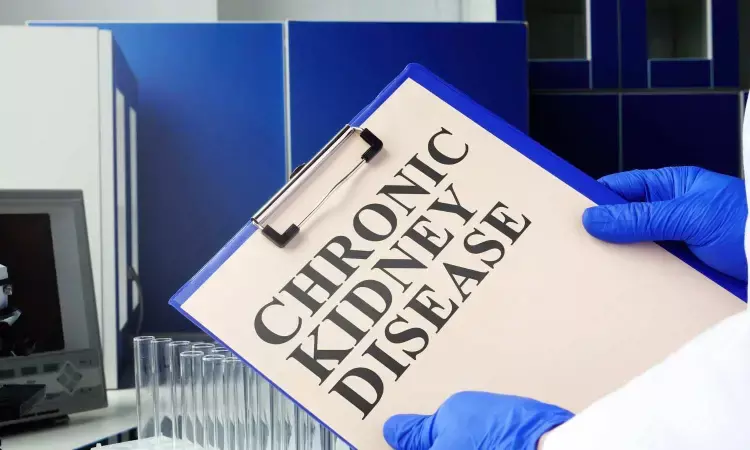- Home
- Medical news & Guidelines
- Anesthesiology
- Cardiology and CTVS
- Critical Care
- Dentistry
- Dermatology
- Diabetes and Endocrinology
- ENT
- Gastroenterology
- Medicine
- Nephrology
- Neurology
- Obstretics-Gynaecology
- Oncology
- Ophthalmology
- Orthopaedics
- Pediatrics-Neonatology
- Psychiatry
- Pulmonology
- Radiology
- Surgery
- Urology
- Laboratory Medicine
- Diet
- Nursing
- Paramedical
- Physiotherapy
- Health news
- Fact Check
- Bone Health Fact Check
- Brain Health Fact Check
- Cancer Related Fact Check
- Child Care Fact Check
- Dental and oral health fact check
- Diabetes and metabolic health fact check
- Diet and Nutrition Fact Check
- Eye and ENT Care Fact Check
- Fitness fact check
- Gut health fact check
- Heart health fact check
- Kidney health fact check
- Medical education fact check
- Men's health fact check
- Respiratory fact check
- Skin and hair care fact check
- Vaccine and Immunization fact check
- Women's health fact check
- AYUSH
- State News
- Andaman and Nicobar Islands
- Andhra Pradesh
- Arunachal Pradesh
- Assam
- Bihar
- Chandigarh
- Chattisgarh
- Dadra and Nagar Haveli
- Daman and Diu
- Delhi
- Goa
- Gujarat
- Haryana
- Himachal Pradesh
- Jammu & Kashmir
- Jharkhand
- Karnataka
- Kerala
- Ladakh
- Lakshadweep
- Madhya Pradesh
- Maharashtra
- Manipur
- Meghalaya
- Mizoram
- Nagaland
- Odisha
- Puducherry
- Punjab
- Rajasthan
- Sikkim
- Tamil Nadu
- Telangana
- Tripura
- Uttar Pradesh
- Uttrakhand
- West Bengal
- Medical Education
- Industry
Kidney histopathological lesions tied to risk of cardiovascular disease in CKD patients: JAMA

USA: A recent study has shown an association between specific kidney histopathological findings and an increased cardiovascular disease (CVD) risk in adults with chronic kidney disease (CKD).
Previous studies have shown that histologic lesions in the kidney may contribute to or reflect systemic processes that may lead to adverse CV events. Leo F. Buckley, Brigham and Women's Hospital, Boston, Massachusetts, and colleagues aimed to evaluate the association between kidney histopathologic lesion severity and the risk of incident MACE (major adverse cardiovascular events) in a prospective observational cohort study.
The study included patients without a history of stroke, myocardial infarction, or heart failure from the Boston Kidney Biopsy Cohort recruited from 2 academic medical centres in Boston, Massachusetts. Semiquantitative severity scores for kidney histopathologic lesions were adjudicated by two kidney pathologists, primary clinicopathologic diagnostic categories, and a modified kidney pathology chronicity score.
The study's primary outcomes as the composite of incident MACE or death, including stroke, myocardial infarction, and heart failure hospitalization. Associations of histopathologic lesions and scores with cardiovascular events were estimated and adjusted for clinical risk factors, demographic characteristics, eGFR, and proteinuria. Two investigators independently adjudicated all cardiovascular events.
The authors reported the following findings:
- Of 597 included participants, 51.6% were women, and the mean age was 51 years. The mean eGFR was 59 mL/min per 1.73 m2, and the median urine protein to creatinine ratio was 1.54.
- The most common primary clinicopathologic diagnoses were IgA nephropathy, lupus nephritis, and diabetic nephropathy.
- Over a median of 5.5 years of follow-up, the composite of death or incident MACE occurred in 126 participants (37 per 1000 person-years).
- Compared with the reference group of individuals with proliferative glomerulonephritis, the risk of death or incident MACE was highest in individuals with nonproliferative glomerulopathy (hazard ratio [HR], 2.61), diabetic nephropathy (HR, 3.56), and kidney vascular diseases (HR, 2.86) in fully adjusted models.
- Mesangial expansion (HR, 2.98) and arteriolar sclerosis (HR, 1.68) were associated with an increased risk of death or MACE.
- Compared with minimal chronicity, greater chronicity was significantly associated with an increased risk of death or MACE (severe: HR, 2.50; moderate: HR, 1.66; mild: HR, 2.22) in fully adjusted models.
"Our findings provide potential insight into mechanisms of the heart-kidney relationship beyond those provided by eGFR and proteinuria," the authors conclude.
Reference:
Buckley LF, Schmidt IM, Verma A, et al. Associations Between Kidney Histopathologic Lesions and Incident Cardiovascular Disease in Adults With Chronic Kidney Disease. JAMA Cardiol. Published online March 08, 2023. doi:10.1001/jamacardio.2023.0056
Dr Kamal Kant Kohli-MBBS, DTCD- a chest specialist with more than 30 years of practice and a flair for writing clinical articles, Dr Kamal Kant Kohli joined Medical Dialogues as a Chief Editor of Medical News. Besides writing articles, as an editor, he proofreads and verifies all the medical content published on Medical Dialogues including those coming from journals, studies,medical conferences,guidelines etc. Email: drkohli@medicaldialogues.in. Contact no. 011-43720751


